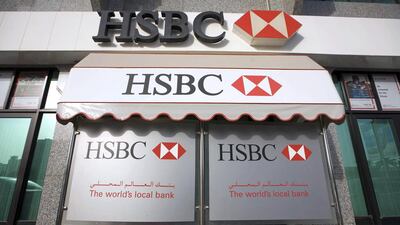In a financial emergency, men are more likely than women to dip into any retirement savings, a survey by HSBC shows, underlining different attitudes to money between men and women.
A study called “The Future of Retirement: A New Reality”, which canvassed research from across 15 markets and sampled 15,000 people, 1,000 of whom were in the UAE, found that when it came to money management women were far more disciplined than their male counterparts.
Nearly a third of men (31 per cent) across the UAE would consider dipping into their retirement funds to cope with unforeseen circumstances or a period of austerity against about one fifth (21 per cent) of women.
According to HSBC, the gender gap became stark when it came to what coping strategies people were prepared to employ should a period of economic instability befall them.
Nearly a quarter (22 per cent) of women were prepared to move to a smaller house when faced with financial difficulty, against 16 per cent of men, and that trend continued when it came to selling the family silver to ease a time of crisis with one third of women (30 per cent) willing to consider it against only a fifth (20 per cent) of men.
“Women appear to be more concerned about maintaining their retirement savings compared to men in the UAE,” said Gifford Nakajima, HSBC’s regional head of wealth development. “They seem to be less likely to dip into this fund when they are financially constrained. It is also interesting to note that men are less proactive when coping with unforeseen circumstances; however this attitude can grow to be a significant problem as it will put more pressure on them in the future.”
The survey continues to bear out the forbearance of women showing they are also more willing to react proactively to dealing with a financial crisis, as nearly 40 per cent would look for better paid work during hard times, while only 28 per cent of men would consider the same move.
However, the survey found that half (50 per cent) of the sample in the UAE were not regular savers. Another study by HSBC also showed that nearly half of retired people (46 per cent) globally have not achieved their hopes for retirement because they have less money to live on than they expected.
ascott@thenational.ae


